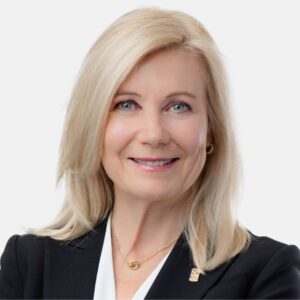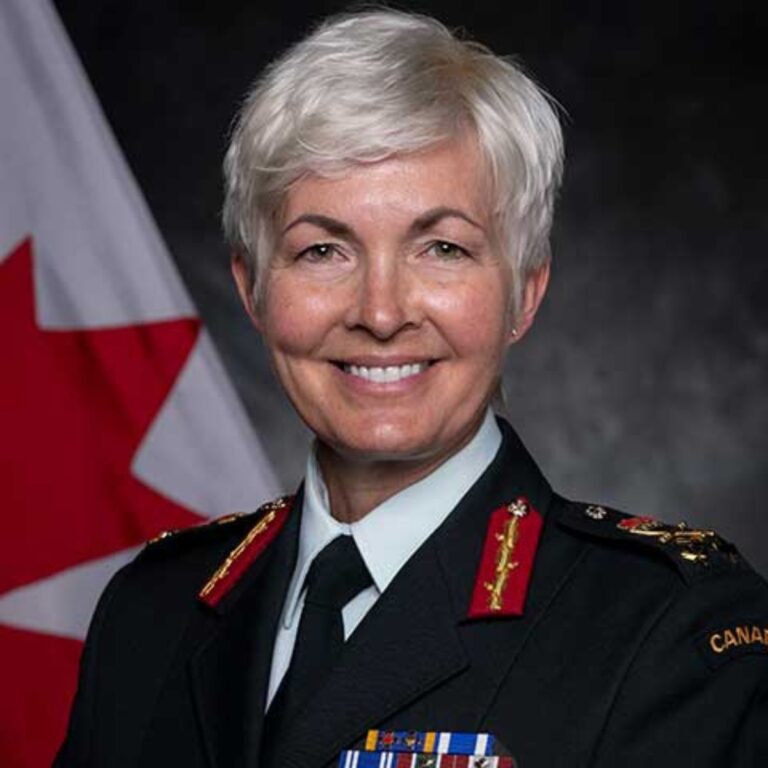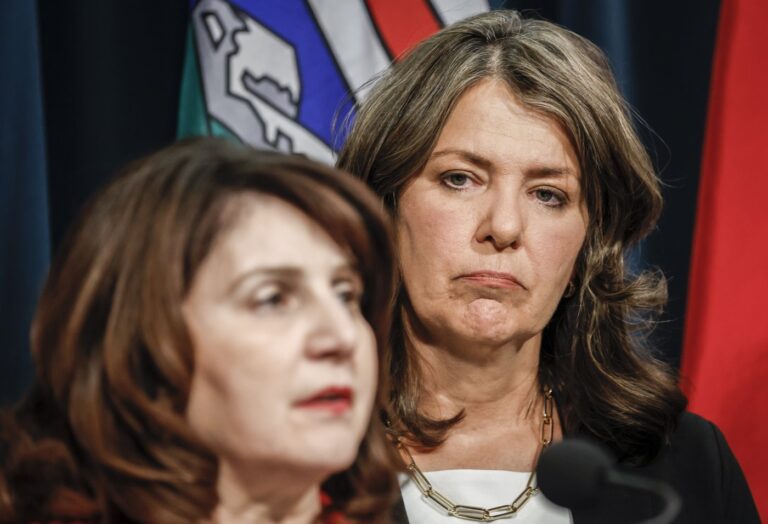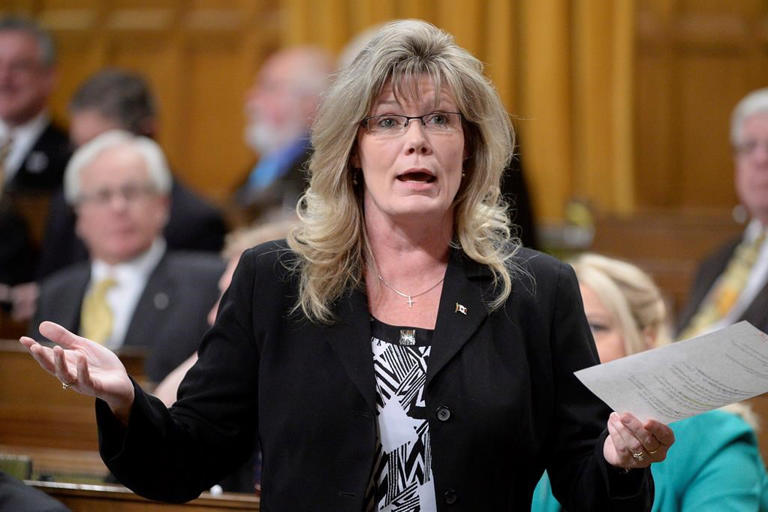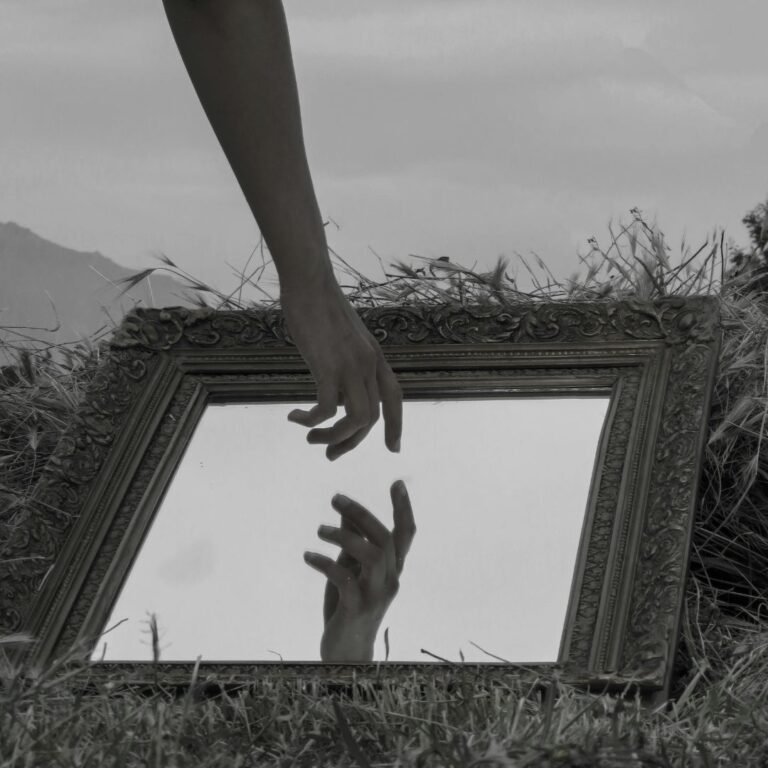Kristy Kirkup — an award-winning journalist and Parliamentary Reporter for the Globe and Mail
Kristy Kirkup is Parliamentary Reporter for the Globe and Mail – an award-winning journalist who has worked for Canada’s largest media companies, covering major news stories and several election campaigns. In this episode of The Honest Talk, Kristy displays her trademark authenticity and sense of humour as she discusses everything from social media to the joys and terrors of balancing motherhood, a pandemic, and a demanding career.
Note: This transcript has been edited for clarity and length.
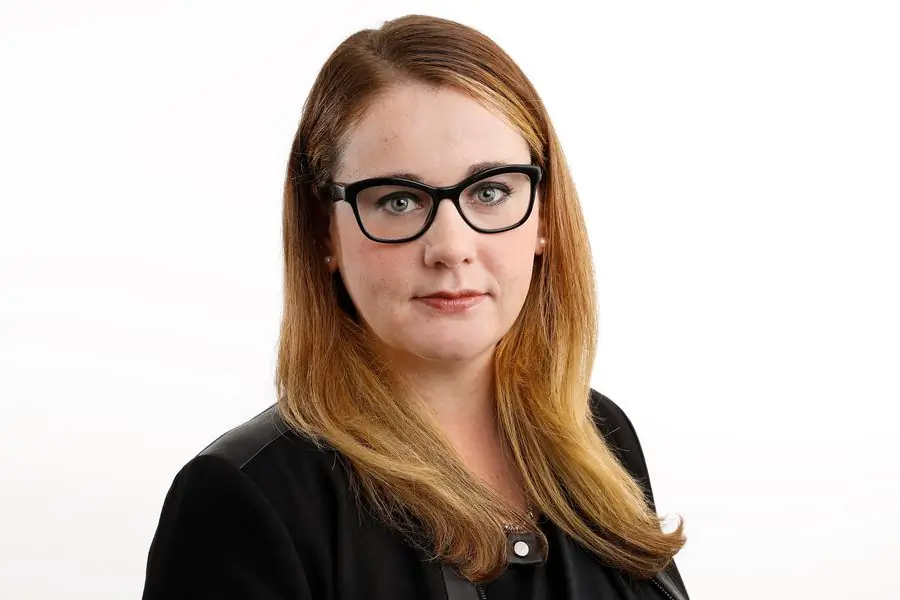
Kristy Kirkup‘s return to election coverage
Jennifer Stewart: How are you feeling about being back on the election bus?
Kristy Kirkup: I was saying to a friend last night that right now going on the road now seems kind of exotic. And I don’t want to trigger my husband by saying that because I know it won’t be like that when he’s at home with our three-year-old and I’m out on the road and very busy.
I’m a political junkie, and I can’t contain my excitement about covering an election.
Kristy Kirkup
The last 17 months have been challenging for everyone. So it’s a strange thing to say, but I feel like I’m starting a reintegration program. I’ve started doing my makeup again for the first time in about a year and a half.
But I keep trying to kind of coach myself through some anxiety that comes up: I tell myself that I’ve done this before; I’ve covered three campaigns. And during the last campaign, my daughter was 18 months old, and my husband was recovering from a severe concussion. She’s a little older now, and my husband is doing better, so things may be more straightforward on the homefront. I’m also feeling ready to get back out, talking to people, and getting on the road again.
Kristy Kirkup about being working mother during pandemic
Jennifer Stewart: You’ve got a daughter and you’ve got a high-stakes career. How has the pandemic been for you?
Kristy Kirkup: It has been a real juggling act for sure. The pandemic has now been going on almost a year and a half, and my daughter, Hazel, is an extremely different person than she was when this pandemic began.
It has been a real juggling act for sure.
Kristy Kirkup
I remember when the Prime Minister made announcements, and I was covering that from home when the border was closing and all these announcements were happening. My husband also works in news, and so our jobs were really intense as the world as we know it was being upended completely. And, you know, she was there watching Justin Trudeau and playing with playdough in her playroom, as I was trying to cover the PM. It was kind of surreal.
I will say that I did have – and I know this was not something that that everyone had access to during that time, but I feel the need to say this out loud because it wasn’t like I was a magician – my mom, whose school was closed, was able to offer me some support with childcare during that time. I don’t honestly know how we would have managed it otherwise. But she was the glue that held the gong show together during those five months.
My daughter was there watching Justin Trudeau and playing with playdough in her playroom, as I was trying to cover the PM. It was kind of surreal.
Kristy Kirkup
And then, when she went back to daycare, that was a huge help. And I can’t say enough how grateful I am for her incredible daycare providers who have been doing such important work during the pandemic and again with the heaviness of all the stories I’ve been telling, what I do would not be possible without them. They are amazing and like family to us, so we’re very grateful for that.
There have been hiccups along the way, my daughter having to go into isolation, and when my mom had to go back to school in the fall, we had no contact outside of our home during that time, so my husband and I were trying to contend with that and some hiccups along the way, including her having to be home, maybe for two weeks at a time, covering parliamentary hearings on sexual misconduct in the Canadian Armed Forces while trying to look after a three-year-old – of course, with my ear pods on so she’s not hearing the content. But those were some of the more challenging moments.
But, again, I think the biggest thing about this pandemic is that I see more and more working women, in particular, being honest about what they’ve gone through. And I think of both of you as examples of that.
And I hope we’re more honest going forward. Because, again, I won’t lie to you, perhaps the gong show intensified during this time, but it’s never easy to juggle all these things with young children. This has perhaps just turned up the volume on the struggle.
I went on my first PM trip when my daughter was 9 ½ months old. I was working for Canadian Press at the time. Before having a baby, I was like, “I’m going to lean in. I’m going to do all these things,” and I remember saying to my husband before I left on assignment, “I don’t think I can do this.I don’t think I can go.” And he said, “Well, you’re going. The Prime Minister’s plane is leaving; you’re going on assignment.”
That whole time I felt very discombobulated and I don’t think I’ve ever become super comfortable juggling the two things. I always told myself, “Maybe when she’s a year old,” or “Maybe when she’s two,” or “Maybe when she’s three.”
I think the reality is that those first few years are challenging, and having supports around makes a big difference, but I do look to the example of other women who have been able to do it and draw inspiration from that.
Kristy Kirkup’s path into journalism
Jennifer Stewart: What were you like when you were a little girl? Did you always want to write, to talk to people, to be a journalist?
Kristy Kirkup: I grew up in northern Manitoba. We moved around a bit. We lived in the country and there wasn’t a lot to do, so my brother had this karaoke machine. I would essentially turn my brother into an interview subject. He would play the various characters, and I would have a show called Perk Up with Kirkup. And I would interview my brother.
So ever since I was a kid, I’ve thought about wanting to work in journalism and tell stories and have these pretend shows, and in many ways, I’m very much living out that dream, so that’s exciting.
Catherine Clark: You’re very open, Kristy, on your Twitter account. There’s upsides and downsides to that kind of transparency. Why are you so transparent and authentic on social media?
Kristy Kirkup: I don’t think I’ve deliberately decided I’m going to be more real. Honestly, I think it happened during the pandemic. And part of it is because I’m an extrovert trapped in house prison. I normally would tell a friend or whatever and share that, but that’s not happening, so that has happened on social media. I don’t think I’m doing anything profound, or, I don’t know, if it’s that interesting, that people would be like, “Oh, she tweeted a picture of her furnace. I followed.”
But, I remember this one moment where I was interviewing a minister, and it was a late-breaking story. And my daughter was having a full-fledged body meltdown upstairs. And I had gone down into the basement, into the furnace room, to try and just chat with the minister because I was on deadline.
And she was just having some big feelings up there, and you could hear her through the boards of the floor. I just thought, here I am, trying to find this quiet space. I’m not going to beat myself up. I’m trying.
I think I’m a recovering perfectionist, honestly, and I think normally, I would have just put on a show and acted like everything was fine. But in that moment, and other moments throughout the pandemic, I feel like it’s just impossible for me to pretend anymore, to put on a full face of makeup and act like I’m not juggling a million things. I was just like, “Yep, this is me. Sorry, Minister, my daughter is having a tantrum; I’m going to deploy the mute function.” What am I supposed to do?
Yesterday I was on a later-breaking story and I was interviewing a senator and I just said, “Sorry, I’ve just pulled over to the side of the road, and just so you know, there’s a little person in the backseat and you might hear some noise.”
Why have I always been so worried about pretending like I’m not a mom or that I’m not juggling things?
Kristy Kirkup
Why do we feel this need to perform?I think, frankly, that contributes to this feeling among women like, “Oh, that person, they’ve got it all together. They’re perfect. What’s wrong with me? Why can’t I have an amazing career and juggle home life and do all these things?”
The reality is, so much is going on behind the scenes that people are just not showing. I love the name of your show, The Honest Talk, because I think if people were just a little bit more honest, then maybe people would feel more sane and feel like they were less of a failure because they feel like they can’t juggle it all.
It’s hard, and I hope that people can be just a little bit more authentic about that. I don’t have the bandwidth to pretend anymore, so this is the real me, and this is what’s going on.
The importance of flexible employers
Jennifer Stewart: What story has impacted you the most in your journalism career?
Kristy Kirkup: I’ve covered the Indigenous Affairs file for a long time and covered the release of the TRC report, of course, but, you know, the findings that we’re hearing about from different communities across the country… I think there is a moment happening according to several Indigenous leaders, where this is being discussed more and more by Canadians, as it should be.
And I can’t think of a story or a beat that deserves more attention from the media because it has been, in years past, undercovered. I hope that we continue to have a conversation about the long-standing impact of residential schools. The TRC documented those impacts, but you can look at everything from the criminal justice system to the health care system and the impacts of systemic racism in those systems.
And we anticipate additional findings because money is being deployed to communities to do this forensic research work. So, that’s the story that’s top of mind for me.
Catherine Clark: What advice do you have for other women who are listening?
Kirsty Kirkup: I would say that a concern that I have is the number of women who have had to leave the workforce because of this unsustainable situation that has been before people. That is something I worry about among friends, or people that I know, because I understand why people feel like this is a lot.
And frankly, I know that I’m speaking from a position of privilege, and I’m very fortunate that my husband is a feminist, which is what honestly makes everything possible for me. He is the person who cooks the meal every single night because I’m taking edits into the evening. He is the person who I leave with my child who’s in the bath, because, again, I have to work into the night because there’s a breaking story. I’m very, very fortunate and have support systems in place.
I know that I’m speaking from a position of privilege, and I’m very fortunate that my husband is a feminist, which is what honestly makes everything possible for me.
Kirsty Kirkup
But to answer your question about advice, I look to people like you for that inspiration.
I keep trying to tell myself this and, hopefully, other women too: “You’ve got this, and if you don’t, reach out to seek help or to ensure that you’re not pushing yourself to the brink.” But that is something I worry about the longer this goes on.
You’ve got this, and if you don’t, reach out to seek help or to ensure that you’re not pushing yourself to the brink.
Kirsty Kirkup
I’m very fortunate because I have a very flexible employer. They know that my daughter is at home with me, and I’m juggling these things, and we have been navigating that. I have to speak up for what we need to because I just don’t believe that we can pretend. You can’t do this alone or pretend like you’re not juggling things because, again, it’s just the reality.
So I hope that employers and organizations going forward are just mindful that, especially going into the fall, we’re all going to have to be pretty flexible because if a runny nose can derail an entire workweek, that’s a problem. It’s a problem for the economy. It’s a problem for women in the workforce.



